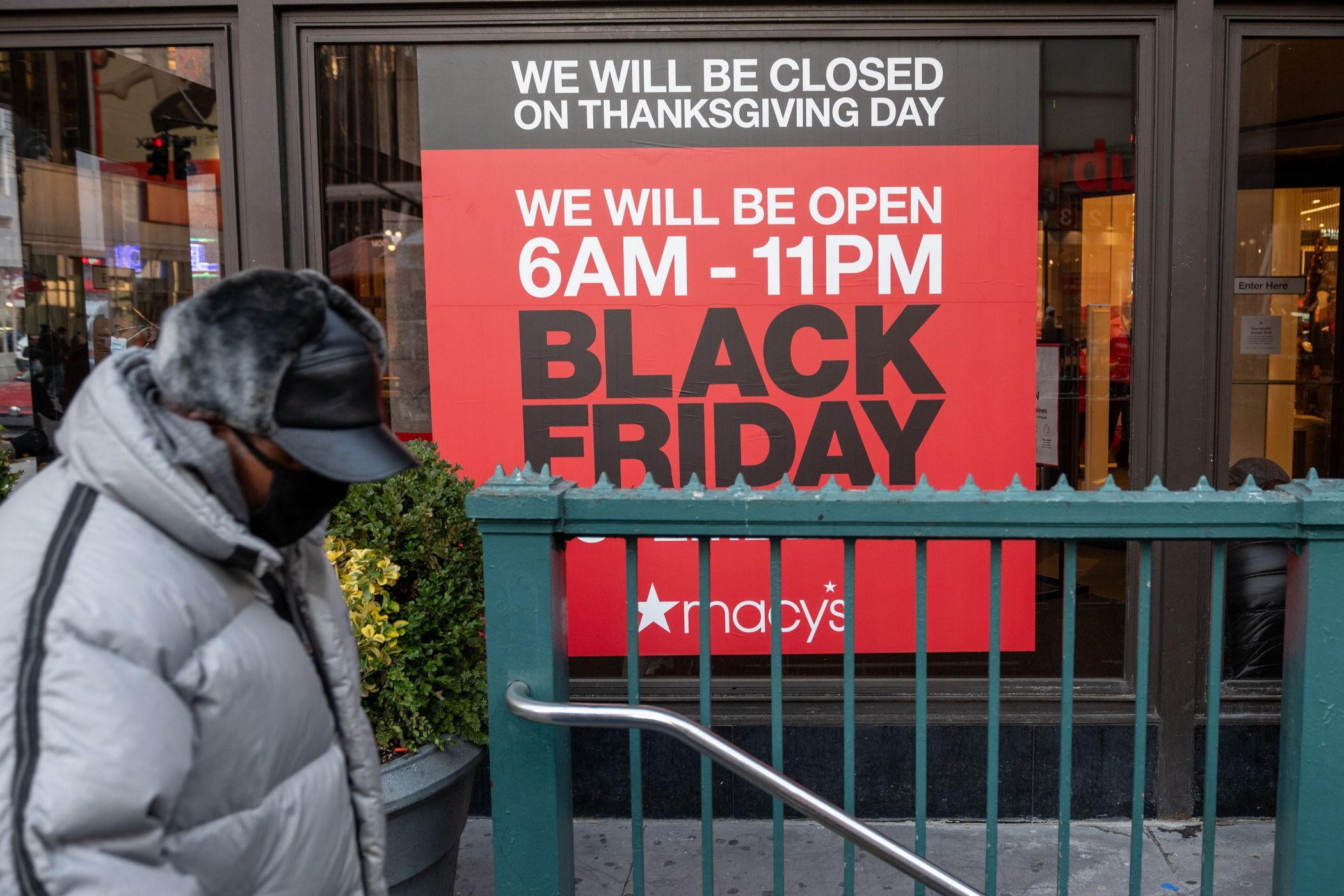As retailers prepare for the holiday season, which on average makes up about 20 percent of their annual sales, much is riding on the success or failure of Thanksgiving weekend.
Many retailers are banking on consumers braving the second wave of coronavirus currently hitting the U.S. to shop on Black Friday, while others have shifted their focus, and their hopes, to online sales. More often, companies are seeking a healthy mix of both.
For the moment, industry watchers are optimistic. The National Retail Federation said in a report this week that it expects sales to increase between 3.6 and 5.2 percent over November and December. That would mean a minimum of $775 billion in additional sales for the year.
"We are optimistic about the holiday season and about the end of the year," Katherine Cullen, NRF's senior director of industry and consumer insights, told Cheddar. "We've seen really strong growth in recent months as consumers have shown some kind of recovery and have shifted some of their other funding into retail."
Shoppers spend about a third of their holiday budget on Thanksgiving weekend, according to NRF. On average, consumers plan to spend around $1,000 this year — just $50 less than last year — and that includes gifts, seasonal food and decor, and other treat-yourself purchases.
The latter appears to have taken the biggest hit this year, Cullen said, as shoppers avoid splurging on themselves to save money for holiday basics.

Thanksgiving weekend is more than a simple slice of the revenue pie, however. It's also an emotional time for consumers, a sort-of symbolic start to the holiday season that could give retailers a taste of what's to come in December.
"In many ways, it's the mental kick-off for the holiday season, even if people start shopping in reality much earlier," Cullen said.
Still, retailers are offering deals early and often, in effect lengthening the Black Friday shopping spree to the preceding week and month.
"It really used to be Black Friday, and then Cyber Monday as a trend, and that's really shifted to consumers being connected all the time," Cullen said. "We've seen it shift to at least a five-day shopping event, and in recent years to an even longer time period."
The federation is increasingly thinking of the month as "Black November," she added, and online sales are helping lengthen the seasonal shopping season.
Klarna, a payments provider and shopping service, released data on Wednesday showing that shoppers are shifting to e-commerce marketplaces, and increasing spending on electronics, sports and hobby, and home and garden categories in the lead-up to Thanksgiving.
“We’re seeing that US consumers are prioritizing electronics purchases and flocking to online marketplaces as many face new 'stay at home’ orders,” said David Sykes, head of U.S. at Klarna, in a statement. “Recent Wish List data from the Klarna app echoes these trends, showing that shoppers across all age demographics are particularly interested in personal electronics, footwear and home items as we enter the holiday season.”
This trend has been ongoing since the beginning of the pandemic. The company found that the share of spending in the "marketplace category," which includes Amazon.com, Target.com, eBay.com, Walmart.com, and SamsClub, increased 44 percent in the third quarter.
Even with these gains, Cullen pointed out that many shoppers still prefer to shop in-person when they can. That's why retailers are expanding curbside pick-up and buy-online but pick-up in-store options, as well as emphasizing safety measures such as metering the number of shoppers in a store and spreading out the lines to meet social distancing standards.
"This year, we are seeing a lot of momentum heading into the weekend," she said. "About two-thirds of consumers say they are excited and looking forward to Thanksgiving sales and promotions."









